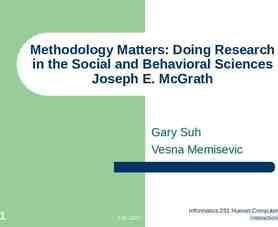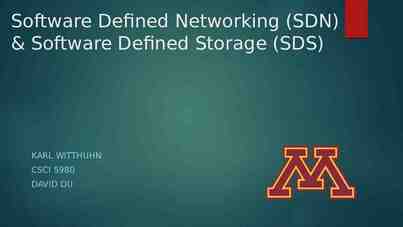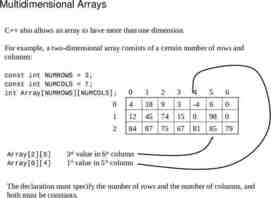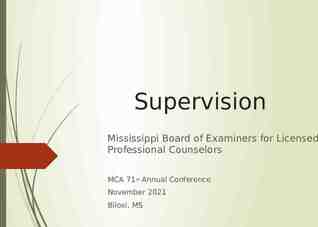K Awards: Writing the Career Award Development Plan ICTS K Grant
39 Slides5.04 MB

K Awards: Writing the Career Award Development Plan ICTS K Grant Workshop Ann Marie McCarthy, PhD, RN, FAAN Associate Dean for Research College of Nursing

Outline Brief comments on Planning for a K Award Writing a K Award Emphasis on Career Development Plan Critiquing a K and the Critique Process Emphasis on Career Development Plan Mistakes to Avoid Questions?

Planning for a K Award Mentor? Which K Award? Which Institute?

NIH Grants Training F Series: Fellowships K Series Career Development T Series Institutional Training Research R Series Research Projects P Series Research Centers Mechanism

Career Stages of Funding Programs

Decide Which K Award Career Development Awards (CDA) for early stage investigators https://researchtraining.nih.gov/programs/career-development Look at the parent PA for each K (clinical trial or not) Common K’s for postdocs & junior faculty K01, K08, K23, K99 Example: K23 https://grants.nih.gov/grants/guide/pa-files/PA-18-374.html

Types of CDAs K01: Mentored Research Scientist Career Development Award: Postdoc or early career, research, research training and experience. K08: Mentored Clinical Scientist Research Career Developmen t Award : Clinician scientist, to develop into independent investigator. K23: Mentored Patient-Oriented Research Career Development Award : Clinically trained professionals, patient-oriented research. K99R00: Pathway to Independence Award: Postdocs, mentored research experience (K99) followed by independent research (R00) during the R00 phase.

K Awards Eligibility: Eligibility for the K01, K08 and K23, limited to no more than 6 years of postdoctoral experience Clinical training, i.e. internship, residency, and/or fellowship, is not considered postdoctoral experience unless there is a research component of 50% effort in any year. Support: Time commitment 75% full time effort (50% for some). Amount of research support varies, 25,000- 50,000 (varies per institute)

No two NIH institutes support the same mechanisms National Institute of Mental Health (NIMH) - F30, F31, F34, F35, K01, K02, K08, K12, K23, K24, K25, P01, P20, P30, P50, R03, R13, R15, R24, R25, R34, R36, S15, T32, T34, T35, U01, U09, U10 National Institute for Nursing Research (NINR) - F31, F32, F33, K01, K22, K23, K24, K99/R00, P01, P20, P30, P50, R01, R03, R18, R21, S15, T32, U01, U10, U18

2017 K Award Success Rate https://report.nih.gov/success rates/ K01 K02 K07 K08 K12 K18 K22 K23 K24 K25 K43 K76 K99 KL2 Total n* 645 18 59 447 69 4 237 641 86 51 42 10 1005 10 3334 % 31.5 55.5 14.5 43.6 46.4 0 18.6 34.0 39.5 23.5 28.6 50.0 23.4 100.0 30.6 * n number of submissions

Writing a K Award Template Career Development Plan Three sections Other Components

Writing a K Award Get help! Mentor, staff, program officer Plan early! Time line. Due dates (DSP) Read the specific call/RFA Look at completed K Awards Know all of the sections Work on all sections (not just research project) You write it, therefore your “voice”, not mentors Template

Main Sections of a K Award Sections Pages Project Summary 30 lines Project Narrative 3 sentences Resources & Budget Introduction if Resubmission 1 Candidate Information and Goals for Career Development and Research Strategy 12 for both combined Specific Aims 1 Training in Responsible Conduct of Research 1 Plans and Statements of Mentor & Co-Mentor 6 Letters of Support from Collaborators, Consultants 6 Description of institutional Support 1 Institutional Commitment to Candidate’s Development 1 Biographical Sketches 5

Candidate Information and Goals for Career Development Develop a career development training plan that is uniquely suited to you Given your previous training and research experience, propose a mix of didactic training and hands-on research experience that addresses the gaps or deficiencies in your knowledge or skills. Exploit the training opportunities available. The training plan should be as carefully thought out as the Research Plan out and presented as the research plan.

Candidate Information and Goals for Career Development A. Candidates Background B. Candidates Career Goals and Objectives C. Candidates Plan for Career Development/ Training Activities during Award Period

Candidate’s Background Briefly describe your education, training and any Fellowships Describe past scientific history, including research experiences Indicate how the award fits into past and future research career development Show evidence of collaborating with others

If there are consistent themes or issues that have guided previous work, these should be described If your work has changed direction, explain why Make your commitment to an independent research career clear May include grants, publications, awards to fully describe background (even though in bio) Note: typically 1-2 pages

Candidates Career Goals and Objectives Describe your long-term career goals Describe your short-term goals specific to this training grant (3-4 short term goals are typical) Describe how the career development award will enable you to develop and/or expand your research career Align career development goals with research plan. Include plans for subsequent grant support May include a timeline

Candidates Plan for Career Development/Training Activities during Award Period Describe skills and knowledge you will acquire Describe specific structured activities that are part of the plan, including courses (including course numbers), workshops, conferences Describe other experiences, including lab experiences Explain how activities relate to proposed research and career development Suggestion: Link activities to short term goals, a Table is helpful

Indicate the percentage of time to be dedicated to each activity by year Example: Table X. Summary of Benchmark Training Activity and Time Involvement Training Activity Year 1 Year2 Year 3 Year 4 Formal Coursework 30% 35% 20% 5% Informal Training 30% 25% 20% 25% Mentor, Advisory committee meetings 25% 20% 20% 15% Manuscript Development/Presentations 15% 20% 20% 25% R series Proposal Development ----- ----- 20% 30%

Sections of a K Award Primary Sections Pages Project Summary 30 lines Project Narrative 3 sentences Resources & Budget Introduction if Resubmission 1 Candidate Information and Goals for Career Development and Research Strategy 12 for both combined Specific Aims 1 Training in Responsible Conduct of Research 1 Plans and Statements of Mentor & Co-Mentor 6 Letters of Support from Collaborators, Consultants 6 Description of institutional Support 1 Institutional Commitment to Candidate’s Development 1 Biographical Sketches 5

Other Components Resources: be specific & link to your application Responsible Conduct of Research: address 5 key points, format, subject matter, faculty participation, duration, frequency (Template) Mentors Statements: describes mentoring, past and for the K, and how often will meet. Should be similar to Candidates section. Letters of Support: Provide title, if consultant, role in your training, how and when meeting Institutional Commitment: needs supervisor to state that you will be provided 75% time for this K Award

Biosketch: intro, 2 paragraphs, general and specific to this application, headline other area of research Human Subjects: provide details, don’t include information here that belongs in Research Plan Budget: Work with your departments business officer Additional Review Criteria: (Considered in the Impact Score) Animal Welfare, Human Subjects Protections, Biohazards Additional Review Considerations: (Does not affect impact score) Training in the Responsible Conduct of Research, Budget, Select Agents, Resource Sharing Reference Letters: 3-5 letters

Critiquing a K Award Critique form Areas critiqued Critique process

Critique Form/Areas 1. Candidate 2. Career Development Plan/Career Goals & Objectives/Plan to Provide Mentoring 3. Research Plan 4. Mentor(s), Co-mentor(s), Consultant(s), Collaborator(s). 5. Environment and Institutional Commitment to the Candidate

Candidate What sections of the application are reviewed for this section? Candidate Information and Career Development Biosketch Questions Considered in Strengths/ Weaknesses Does the candidate have the potential to develop as an independent and productive researcher? Are the candidate's prior training and research experience appropriate for this award?

Is the candidate’s academic, clinical (if relevant), and research record of high quality? Is there evidence of the candidate’s commitment to meeting the program objectives to become an independent investigator in patient-oriented research? Do the letters of reference address the above review criteria, and do they provide evidence that the candidate has a high potential for becoming an independent investigator?

Career Development Plan/Career Goals & Objectives What sections of the application are reviewed for this section? Candidate Information and Career Development Questions Considered in Strengths/ Weaknesses What is the likelihood that the plan will contribute substantially to the scientific development of the candidate and lead to scientific independence?

Are the content, scope, phasing, and duration of the career development plan appropriate when considered in the context of prior training/research experience and the stated training and research objectives for achieving research independence? Are there adequate plans for evaluating the candidate's research and career development progress?

Research Plan What sections of the application are reviewed for this section? Specific Aims Research Strategy Candidate Information and Career Development Questions Considered in Strengths/ Weaknesses Are the proposed research question, design, and methodology of significant scientific and technical merit? development plan?

Is the research plan relevant to the candidate’s research career objectives? Is the research plan appropriate to the candidate's stage of research development and as a vehicle for developing the research skills described in the career development plan?

Mentor(s), Co-mentor(s), Consultant(s), Collaborator(s What sections of the application are reviewed for this section? Candidate Information Mentors’ Statements Biosketches Questions Considered in Strengths/ Weaknesses Are the mentor's research qualifications in the area of the proposed research appropriate?

Do(es) the mentor(s) adequately address the candidate’s potential and his/her strengths and areas needing improvement? Is there adequate description of the quality and extent of the mentor’s proposed role in providing guidance and advice to the candidate? Is the mentor’s description of the elements of the research career development activities, including formal course work adequate? Note: Size of team, often 1-2 mentors, 3 consultants, local vs national

Is there evidence of the mentor’s, consultant’s and/or collaborator’s previous experience in mentoring the development of independent investigators? Is there evidence of the mentor’s current research productivity and peer-reviewed support? Is active/pending support for the proposed research project appropriate and adequate? Are there adequate plans for monitoring and evaluating the career development awardee’s progress toward independence?

Environment and Institutional Commitment to the Candidate What sections of the application are reviewed for this section? Institutional Commitment to Candidate’s Development Questions Considered in Strengths/ Weaknesses Is there clear commitment of the sponsoring institution to ensure that the required minimum of the candidate’s effort will be devoted directly to the research described in the application, with the remaining percent effort being devoted to an appropriate balance of research, teaching, administrative, and clinical responsibilities? (eg 75%)

Is the institutional commitment to the career development of the candidate appropriately strong? Are the research facilities, resources and training opportunities, including faculty capable of productive collaboration with the candidate, adequate and appropriate? Is the environment for scientific and professional development of the candidate of high quality? Is there assurance that the institution intends the candidate to be an integral part of its research program as an independent investigator?

Mistakes to Avoid Grammar and spelling errors Lack of Link between training and research project Link between letters and bios and this study A consultant in a key area Schedule of meetings with mentor and team

Mistakes to Avoid (cont) Lack of Clear statement of need for training Clear explanation of why each member of the team is included Clear support from mentor, lab, University etc. Clear description of long term goal and what the next step is, including an R grant

Thank you Any Questions?






